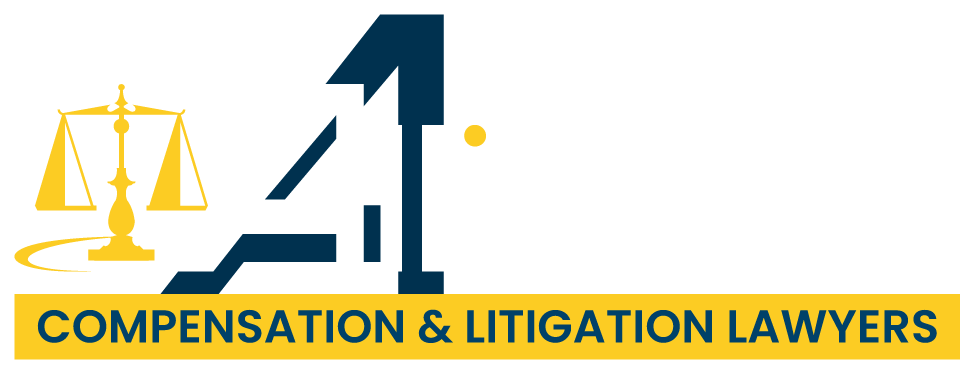The correlation between Superannuation and Workers Compensation
Superannuation is a crucial aspect of financial planning for all working individuals, including those who may be on workers’ compensation. It is a system in which employers make regular contributions towards their employees’ retirement funds. The purpose of superannuation is to ensure individuals have financial security and stability during their retirement years.
In the context of workers’ compensation in New South Wales (NSW), super contributions are typically calculated at a minimum of 10.5% of ordinary time earnings (OTE) of the worker. OTE refers to the earnings an individual would have received if they had not sustained a work-related injury.
When an injury occurs, we often get a lot of questions around whether or not superannuation is paid while injured workers are on Workers Compensation. By the end of this article you should have a solid understanding on:
- Whether Superannuation is paid while on Workers Compensation
- Different scenarios for when Superannuation is paid while on Workers Compensation

Is Superannuation paid on Workers Compensation?
In New South Wales (NSW), superannuation is not paid to injured workers while on Workers Compensation. According to Safe Work Australia, superannuation is not included within income replacement payments otherwise known as the weekly payments you may receive while on Workers Compensation.
According to the ATO’s Superannuation Guarantee Ruling (SGR 2009/2), it states that Workers Compensation payments are not defined as salary or wages that make up the worker’s OTE. Because superannuation is paid as a percentage of an employee’s OTE, Workers Compensation payments do not qualify and therefore Super is not required to be paid by the employer.
Here is a simple example from the ruling to help you further understand this:
Lamont was injured in a snorkelling accident while on duty as reef guides for their employer, Ocean Tours. Lamont was not able to return to work as a result of the accident. He received workers’ compensation payments from the Atlantis Insurance Co in an amount of a continuation of their salaries.
Outcome
The workers’ compensation payment received by Lamont is not ‘salary or wages’. As the workers’ compensation payment received by Lamont is not ‘salary or wages’, it is not OTE and Superannuation is not payable.
What are the exceptions for superannuation to be paid while on Workers Compensation?
Superannuation may still be paid while on workers’ compensation under certain circumstances in New South Wales. The 3 main exceptions that allow injured workers to receive superannuation include:
- Modern Awards
- Enterprise agreements
- Returning to work with some capacity
These exceptions ensure that injured workers receive their superannuation benefits and help maintain their financial stability while recovering.

Unless specified in Modern Awards
Modern Awards, are industry-specific employment standards, which may have exceptions to the general rule of paying superannuation contributions to injured workers. Modern Awards were established to safeguard employees’ interests and to ensure they are given their due rights and benefits, and they cover various industries and occupations.
It is important for you to understand the terms of the relevant Modern Awards to determine your entitlement to superannuation in specific situations where you are injured and receiving Workers Compensation benefits. These awards may specify different rules regarding superannuation payments for injured workers, such as exceptions for certain periods of time or types of injuries.
So if you are injured at work and claiming worker’s compensation, it is in your best interest to review any relevant Modern awards that may be applicable to you. You might find that you are eligible for superannuation payments while you receive compensation.
Example: Building and Construction General On-site Award 2020 (MA000020)
The Building and Construction General On-site Award 2020 (MA000020) is an industry award that covers employers and employees throughout Australia involved in general building & construction, civil construction, and metal and engineering construction.
According to Clause 28.5(b) of this award, it states that the employer must make superannuation contributions for the period of absence from work of an employee due to a work related injury provided that:
- The employee is receiving workers compensation payments
- The employee remains employed by the employer
In addition to this, the superannuation payments made by the employer are subject to a maximum of 52 weeks.
To find relevant modern awards related to your industry you visit the Fair Work Commission‘s website.
Unless specified in an Enterprise Agreement
Enterprise Agreements are collective agreements made at an enterprise level between employers and employees about terms and conditions of employment. They are tailored to the needs of a specific business or enterprise and can offer terms and conditions that are more beneficial to employees than those specified in Modern Awards.
When it comes to workers’ compensation and superannuation, the specifics can vary greatly depending on the particular Enterprise Agreement. Some agreements may stipulate that employers continue to make superannuation contributions for employees who are on workers’ compensation.
It is important for injured workers to review their Enterprise Agreements to see if they are still eligible for superannuation payments while receiving Workers Compensation Benefits. It’s highly advisable that you seek legal advice from experienced Workers Compensation Lawyers who can help you with your case.
Returning to work with some capacity
When you return to work with partial capacity, your hours worked will be considered “salary or wages” and counted towards your OTE. This means your employer will be required to pay you superannuation on the work you’ve performed while you are still receiving workers compensation benefits.
To understand whether you’re able to work with some capacity, you should undertake a work capacity assessment and obtain a new certificate of capacity. This new information will allow insurers to make a work capacity decision on your suitable duties & employment options.
Here is another example to show how this works using the same scenario as above:
Dean was also injured in a snorkelling accident while on duty as reef guides for their employer, Ocean Tours. However, Dean was able to resume work within a month, although he was placed on lighter duties. He also received workers’ compensation payments from the Atlantis Insurance Co in an amount of a continuation of their salaries.
Outcome
The workers’ compensation payment received by Dean on resumption of work is ‘salary or wages’. The workers’ compensation payment received by Dean is OTE, as it is paid to ensure that he continues to receive payment for his ordinary hours of work and therefore superannuation is paid to Dean.
How Alliance Compensation & Litigation Lawyers can help
If you have recently been involved in a workplace injury and claiming workers compensation, you may be worried about what will happen to your superannuation. Our skilled Workers Compensation Lawyers at Alliance Compensation & Litigation Lawyers are able to assist you along the way.
We’ve helped thousands of everyday Australians through their Workers Compensation Claim to maximise the the compensation they are entitled to at a no-win no-fee basis.
For more information about Workers Compensation, visit our Complete Workers Compensation Guide.
Book your free no-obligation consultation with us today by calling (02) 8764 1776 or email us at refer@alliancecomplawyers.com.au


















